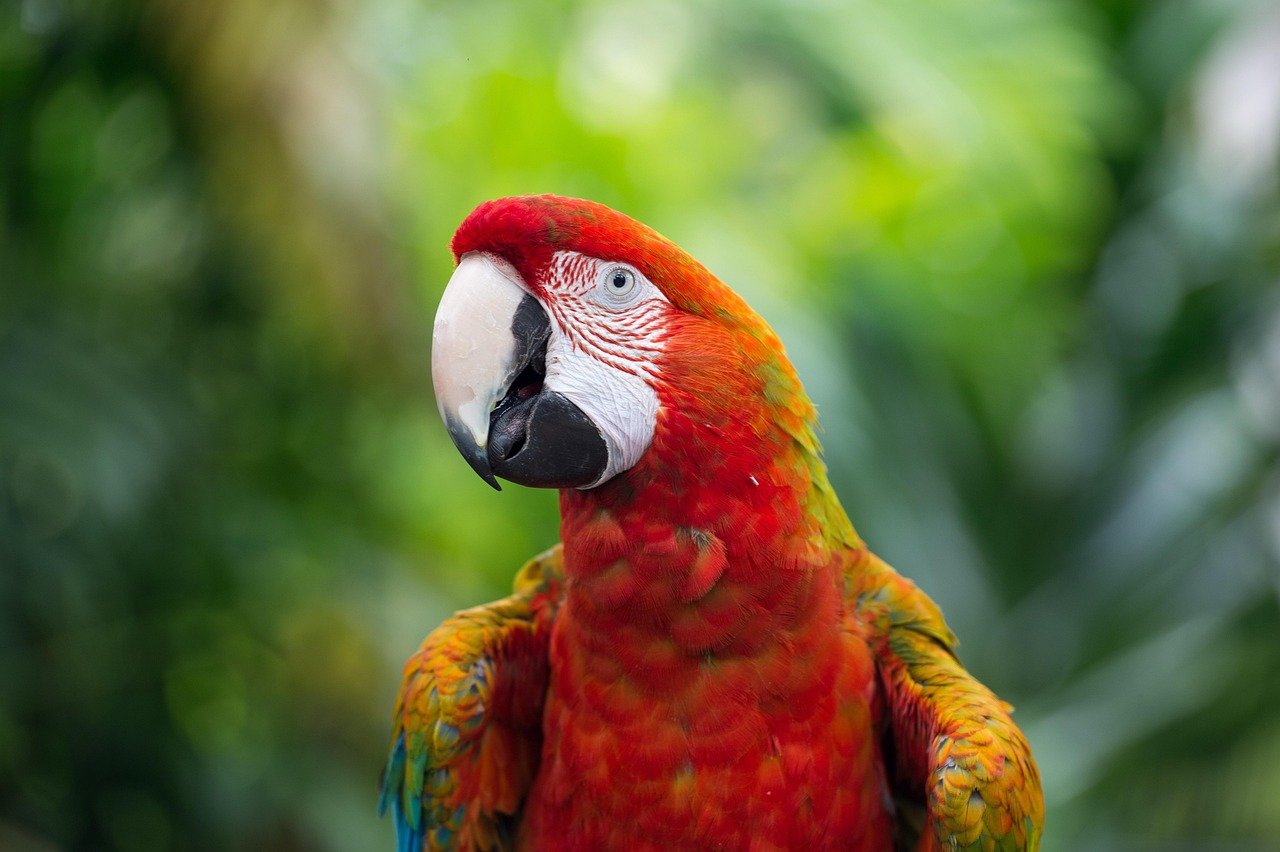Have you ever dreamed of sharing your home with a slithering python or a chattering monkey? The idea of owning an exotic pet is both thrilling and, let’s be honest, a little bit wild. In Arizona, where the sun blazes and the desert stretches for miles, people’s fascination with unusual animals is alive and well. But before you rush out to adopt a capuchin or a colorful lizard, there’s a jungle of rules, risks, and responsibilities you absolutely need to know. This guide dives deep into 10 essential facts about owning exotic pets in Arizona, revealing truths that may surprise, delight, or even shock you. Whether you’re already an exotic pet parent or just daydreaming, these insights will open your eyes and maybe even tug at your heartstrings.
Arizona’s Laws on Exotic Pets Are Surprisingly Strict
Many pet lovers believe Arizona is a wild west where anything goes, but when it comes to exotic animals, the law draws clear lines. The Arizona Game and Fish Department classifies animals as either “restricted” or “allowed,” and the list is more conservative than you might guess. For example, big cats like tigers and lions are off-limits for private ownership, no matter how much you adore them. Even animals like certain monkeys, bears, and wolves are strictly regulated or flat-out banned.
If you’re thinking about bringing home an unusual companion, it’s crucial to know that having the wrong animal can lead to fines, confiscation, or even criminal charges. The state’s main concern? Protecting native wildlife, preventing disease outbreaks, and keeping people safe. So, before you fall in love with that baby alligator or exotic bird, double-check Arizona’s regulations to avoid heartbreaking surprises.
Permits Are Often Required—And Hard to Get

For some exotic species, you can’t just walk into a pet shop and buy one. Arizona requires special permits for certain animals, especially those considered potentially dangerous or invasive. These aren’t rubber-stamp permissions, either. Getting a permit often means proving you have the right experience, facilities, and resources to care for the animal safely and ethically.
The application process can be lengthy and full of hoops to jump through. You might need to show detailed plans of your animal’s enclosure, provide references, or even undergo background checks. And even then, approval isn’t guaranteed. If you’re not prepared for this paperwork marathon, you might want to reconsider your exotic pet dreams or look for species that don’t require permits.
Not All Exotic Pets Are Allowed in Arizona

While some states are lenient, Arizona draws a hard line on certain animals. You won’t find privately owned chimpanzees, tigers, or crocodiles living in the average Arizona backyard. The law specifically bans or heavily regulates animals considered dangerous, invasive, or at risk of harming local ecosystems. If you have your heart set on a particular species, you need to check the Arizona Game and Fish Department’s “Restricted Live Wildlife” list.
There are exceptions, of course. Some reptiles, birds, and small mammals are allowed, as long as they don’t pose a threat. But don’t take internet forums or pet stores at face value—what’s legal in another state might not be in Arizona. It’s your responsibility to research the latest rules before bringing home any unusual creature.
Exotic Pets Can Be Costly—In Ways You Might Not Expect

When people think about owning an exotic pet, they often budget for the purchase price and maybe some food. The reality is, the costs can be staggering. Exotic pets often need specialized enclosures, temperature controls, and unique diets that quickly add up. For example, a small monkey might require a large, reinforced cage and a diet of fresh produce and vitamins.
But that’s not all. Veterinary care for exotic animals is far more expensive than for cats or dogs, mainly because fewer vets are trained and willing to treat them. Emergency care can run thousands of dollars. And don’t forget insurance—some policies won’t cover exotic pets at all. If you’re not ready for these hidden expenses, the dream of exotic pet ownership might quickly become overwhelming.
Finding a Qualified Veterinarian Can Be Challenging

Imagine your beloved sugar glider falls ill—who do you call? In Arizona, not every vet is equipped to handle exotic species. Many veterinarians specialize in dogs and cats, leaving exotic pet owners scrambling to find someone with the right training. This shortage can mean long drives, higher costs, and sometimes, heartbreaking delays in treatment.
You’ll need to do your homework before you even bring your exotic pet home. Make a list of local vets who treat your chosen species, and ask about their experience and emergency availability. It’s smart to establish a relationship early, so you’re not caught off guard in a crisis. The extra effort can make a world of difference when your pet’s health is on the line.
Escape and Release Laws Are Strictly Enforced

It’s every exotic pet owner’s nightmare: your animal escapes or is deliberately released into the wild. In Arizona, the consequences are serious. The state has strict penalties for allowing non-native animals to escape, since they can threaten local wildlife, spread disease, or even become invasive pests. If your pet gets loose, you’re legally required to report it immediately.
Deliberately releasing an exotic animal is not only unethical—it’s illegal and can result in heavy fines or criminal charges. Arizona has learned from the mistakes of other states, where released pets have caused environmental disasters. Responsible ownership means secure enclosures, regular safety checks, and never, ever setting your animal free.
Some Exotic Pets Can Live for Decades

Owning an exotic pet isn’t a short-term commitment. Many species can outlive cats, dogs, and sometimes even their owners. Tortoises, for example, can live 50 years or more, while some parrots have lifespans that rival humans. This longevity means you’re not just making a decision for yourself, but possibly for future generations of your family.
If you’re thinking about adopting a long-lived animal, consider what will happen if your circumstances change. Will you still be able to care for your pet in 10, 20, or 30 years? Do you have someone who can take over if needed? Planning for the long haul is essential, and it’s an emotional responsibility that can’t be taken lightly.
Proper Enrichment and Socialization Are Critical

Exotic pets are not like dogs or cats—they have unique needs for mental stimulation and social interaction. Without proper enrichment, many exotic animals develop behavioral problems, depression, or even self-harm. A bored parrot may pluck out its feathers, while an understimulated reptile could become lethargic or aggressive.
Providing the right environment means more than just a spacious cage. You’ll need to research your pet’s natural behaviors and mimic them as closely as possible. This could mean climbing structures for primates, burrowing areas for reptiles, or daily interaction for highly social birds. Meeting these needs isn’t just kind—it’s crucial for your pet’s well-being and happiness.
Neighbors and Zoning Laws Matter More Than You Think

You might be excited about your new exotic pet, but your neighbors might not share your enthusiasm. Some animals are noisy, smelly, or intimidating, leading to complaints and even legal battles. Arizona cities and counties may have their own zoning laws that restrict certain animals, even if the state doesn’t.
Before bringing home an exotic pet, check with your landlord, homeowner’s association, or local government. Some neighborhoods ban specific animals or require extra permits. Being upfront and proactive can save you from conflicts, fines, or the heartbreak of having to give up your beloved companion.
Education and Ongoing Research Are Non-Negotiable

The world of exotic pets is constantly changing. New research, disease outbreaks, and even shifting laws can impact how you care for your animal. Owners who thrive are the ones who never stop learning—reading, attending workshops, and connecting with reputable breeders or rescue groups. Education isn’t just about memorizing facts; it’s about creating the best life possible for your unique companion.
Staying informed also means being humble enough to admit when you don’t know something. Reach out to experts, join local or online support groups, and always double-check information before making big decisions. It’s a journey, and your willingness to learn is the greatest gift you can give your exotic pet.
Owning an exotic pet in Arizona comes with unique responsibilities, legal considerations, and a deep need for informed care. The ten essential facts outlined here highlight just how important it is to understand state regulations, the specific needs of each species, and the long-term commitment exotic animals require. While these pets can be fascinating and rewarding companions, they also deserve thoughtful, ethical treatment in environments that support their well-being. In Arizona’s diverse climate and legal landscape, responsible ownership isn’t just about having something rare—it’s about ensuring every exotic pet receives the respect, care, and safety they need to thrive.

Andrew Alpin from India is the Brand Manager of Doggo digest. Andrew is an experienced content specialist and social media manager with a passion for writing. His forte includes health and wellness, Travel, Animals, and Nature. A nature nomad, Andrew is obsessed with mountains and loves high-altitude trekking. He has been on several Himalayan treks in India including the Everest Base Camp in Nepal.






